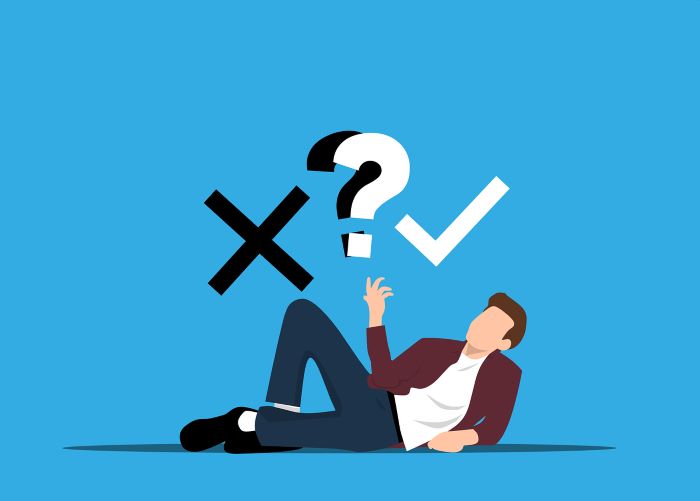In everyday living, humans are faced with a challenging dilemma in the form of decision-making. Regardless of how minute or basic the situation may be, humans have to make a myriad of choices in life. And depending on how serious the implications of these decisions are, a seemingly simple choice can make or mar the future.
So whether it is about selecting a game at an online gaming platform like Bovada casino, or choosing a life partner, there are always consequences attached. As a result, it becomes important to take a look behind the curtain and see the psychological processes that influence decision-making. And this we shall do as we progress in this article.
The Dual-Process Theory
In general, psychologists refer to the processes involved in making decisions as a twofold system; System 1 and System 2. System 1 is a fast, automatic, and intuitive process. It more or less follows shortcuts in the mental space to reach swift conclusions.
System 2, on the other hand, involves much slower thinking and deliberations. Unlike the first system, it involves careful analysis and evaluation before making any judgment.
Understanding how these two systems intersect may help figure out why humans sometimes make instant decisions and at other times make choices slowly.
The Blend of Emotions and Decision-Making
More often than not, emotions play a very significant role in decision making and there’s no point arguing that. Feelings such as anger, anxiety, joy, fear, etc often affect what direction our choices swing. And sometimes depending on the outcome, we might regret later the decisions we made because rational judgment has been clouded by emotions.
However, the other side of it is that if the emotions are positive, it could result in creative and innovative reasoning. Thus, having a good grasp of the interactions between emotions and decision-making is important.
Cognitive Biases
Sometimes, there are factors or situations that tend to influence our decisions and these are usually referred to as cognitive biases. In simple terms, these cognitive biases tend to skew human judgment which may lead to reasoning errors and confused decisions.
An example of such bias is looking for info that supports or affirms what you already believe in; referred to as confirmation bias. Another example is where the first information you get has an effect on the opinion you form about a thing; called anchoring bias. But whatever the bias may be, having an understanding of it can help reduce its influence on your choices.
The Influence of Others
Seeing as how humans are social creatures, there is no way that our decision-making process is not affected by those that surround us. Factors like expectations, peer pressure, societal conformity, and norms greatly affect the shaping of our choices. Also, the need to avoid disapproval and the seeking of societal validation creates a sort of conformity in our choice-making.
However, the result of this conformity could be either positive or negative. It all depends on the context and the situation at hand.
Decision Fatigue
On a daily basis, the average human makes a series of decisions and this may result in what is known as decision fatigue. And if we’re not careful, cognitive resources may deplete to the point where quality decision-making becomes a difficulty.
In areas like personal finance, it is not uncommon to see many make poor financial choices. Most times, this is often a result of these individuals being overwhelmed with the weight and stress of these choices.
This is why it is important to be able to recognize when decision fatigue begins to set in and adopt management strategies. This way, you can make more effective choices.
Default and Nudges: Influencing Choices
This aspect of human selection is so subtle that it sometimes goes undetected. It has to do with choice architecture or budging where you are presented with options. These options are presented in a way that you still have your freedom to choose but it influences your decision.
One such example is any form of donation, most especially organ donation. Nudges and defaults, one way or another, shape our decisions in environments designed for them.
The Paradox of Choice
The paradox of choice is quite similar to the phenomenon of decision fatigue. However, here, it involves a case where humans have an abundance of choices to pick from only that this makes it more difficult to choose. Many would assume that having a wide variety of options is desirable but it more often than not leads to decision paralysis.
Several surveys have proven that in the presence of multiple options, most individuals experience anxiety which makes it challenging to reach a conclusion. This is why it’s important to set clear criteria for decision making which helps streamline choices and removes the burden of excessive options.
Conclusion
From the above, you can see that the process of decision-making goes beyond black and white; there’s a gray area involved that’s often overlooked. Several factors go into the psychology of human selection such as listed above. Having a strong understanding of the interplay between psychology and reasoning can empower you to make better choices with positive outcomes.

